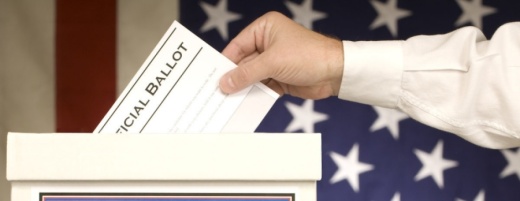In a 3-2 vote on April 7, Harris County commissioners authorized the Harris County Attorney's Office to file an amicus brief in support of a federal lawsuit brought on by the Texas Democratic Party seeking legislative action to allow voters who fear exposure to the coronavirus to cast votes via mail-in ballots.
The lawsuit was filed by the Texas Democratic Party on April 7 against Texas Gov. Greg Abbott and Secretary of State Ruth Hughes.
Current Texas Election Code states qualified voters may request mail-in ballots if they expect to be absent from their voting jurisdiction on election day, are over the age of 65, are confined in jail, or claim disability. Robert Soard, the first assistant Harris County attorney, said the amicus brief would support legal clarification and action by the secretary of state on the terms of disability for voters as it relates to the coronavirus outbreak.
“So far, the secretary of state has not provided any guidance on whether a fear of [coronavirus] is an appropriate disability that allows anyone to request a mail-in ballot,” Soard said during the meeting. “County Attorney Vince Ryan is requesting authority that our office be allowed to file an amicus brief asking the judge in Austin to determine that that statute does mean that so long as the COVID-19 disaster is in effect, any voter could ... vote by mail.”
The motion was raised by Precinct 1 Commissioner Rodney Ellis, seconded by Precinct 2 Commissioner Adrian Garcia and passed with support from Harris County Judge Lina Hidalgo. Precincts 3 and 4 Commissioners Steve Radack and Jack Cagle voted against the motion.
“I think if someone has a fear, even if it's pneumonia, if it's the flu, I want them to be able to get a ballot, and that's just not clear now,” Ellis said.
Cagle said he had reservations about passing a motion in support of a lawsuit raised by a party-aligned organization and asked for clarification on a secretary of state advisory that had been released earlier that morning. The advisory has not yet been released to the public as of April 8.
“Before we file a brief on behalf of a political party—which causes me great concern—I think that the secretary of state's advisory is going to be that if someone is concerned on the health basis of making an appearance, that they will be allowed to do a vote by mail, which is completely different than what potentially may be in this suit, which is declaring that everybody is in the category of being able to vote by mail,” Cagle said.
Douglas Ray, a special assistant to the attorney's office, clarified the advisory failed to give clarification on the current election code.
“The statement ... restates the law that says if somebody fits this description of a disability, they can ask for a mail-in ballot, so I don’t think it renders the whole thing moot; it just presents over again the same question,” Ray said.
Tanuke Smith of the Texas Organizing Project said the current lack of clarification in the statute has affected her organization’s ability to suggest resources for members who are worried about exposure to the coronavirus while voting during the pandemic.
“Because the state has ignored the request to make it clear that the law allows for people to vote by mail during this crisis, TOP can't encourage its members and its partners to apply for the vote-by-mail [option] for the fear of those ballots being rejected, or the people being prosecuted for using that option,” she said.
Ray said while it is unusual for the county clerk’s office to reject or follow up on claims of disability for mail-in ballot requests from voters, clarification on the statute could serve to benefit future elections.
“Whether ... participating with a partisan agency or not, I think that we should notify the court that Harris County would like the interpretation of the statute as well and that it'd be favorable to our future state conducting of our elections,” Ray said.
Should the county have to adjust to accepting high volumes of mail-in ballots, Ray said the Harris County Clerk’s Office could require a significant increase in funding in the future to ramp up the program.
“It would have a great deal of expense involved and there would be a lot of manpower to manage, which we should expect,” Ray said. “I identified two different provisions of the CARES Act that might help us out on that provision."
The federal Coronavirus Aid, Relief, and Economic Security Act is a $2 trillion relief funding package, which was signed into law by President Donald Trump on March 27. According to Ray, support could come as direct federal payments to local governments and as funding allocated to jurisdictions with elections.
Garcia also suggested support could also come from county commissioners’ offices.
“I would encourage [Harris County Clerk Diane Trautman] to lean on our offices to be a part of the process to help in this,” Garcia said. “The lawsuit itself won't fix things, procedurally, if you will, or operationally, but our offices can all be very helpful in that regard.”
According to the clerk's office, the last day to apply for voting by mail for elections in May is April 20.





